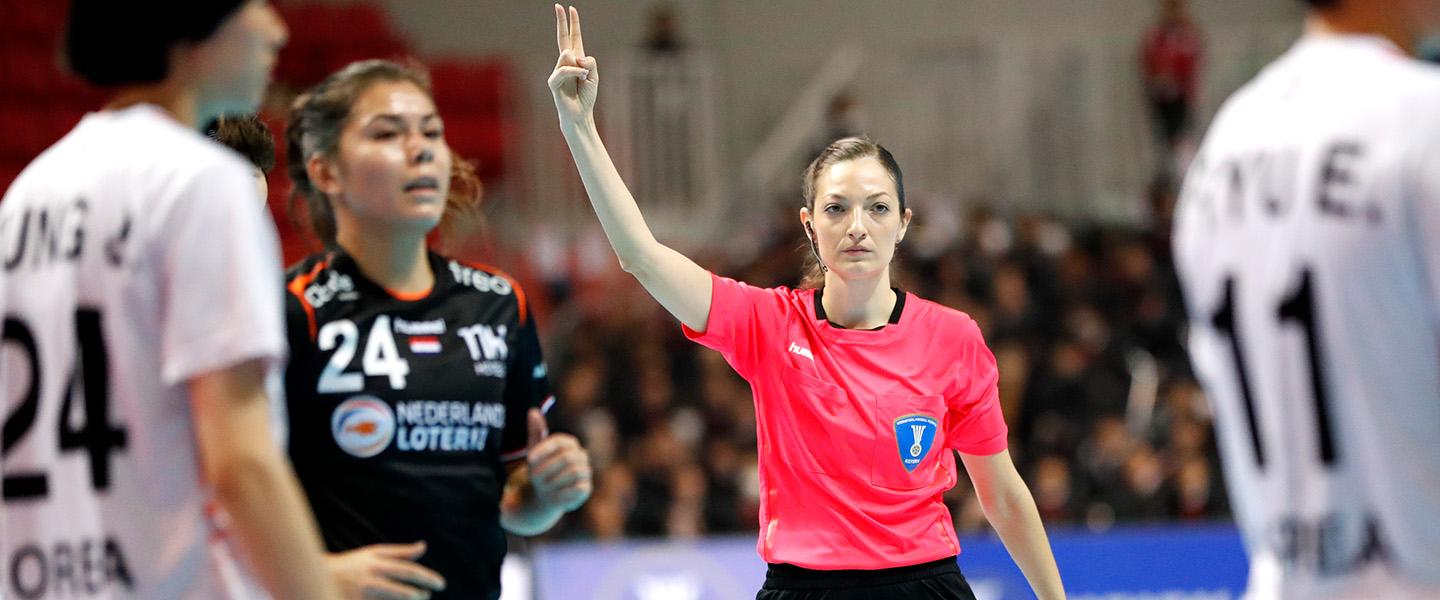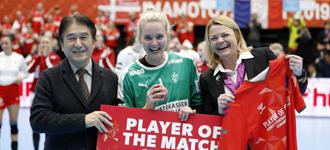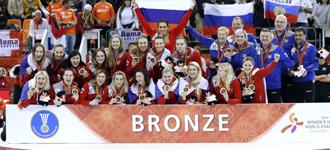PRC Chairman Ramon Gallego reflects on a successful World Championship
15 Dec. 2019

Following the conclusion of the 24th IHF Women’s World Championship, Chairman of the IHF Playing Rules and Referees Commission, Ramon Gallego, takes a look at the event from the PRC perspective.
ihf.info: There have been some changes in the IHF referee programme in the last years, particularly focusing on physical fitness and nutrition for example. How do you see the programme overall right now in the context of this World Championship?
Ramon Gallego: I think the preparation for the referees was in a very, very professional way. But not only in a technical and tactical way, in cooperation with the physical trainers – also in a physical way.
We have very good IHF fitness trainers but now also we have a physiotherapist, because the referees, like the players, have a long tournament and with many matches and trainings, they have some muscle problems. They need sometimes the help of the physical therapist, or sometimes the advice is to take a rest for 24 hours or no training – like the players.
In the last week of the championship, all the referees showed excellent physical form – also mentally – and this is one of the key reasons why, in the IHF, we are extremely satisfied with the work of the referees in this really good World Championship.
ihf.info: Do you think the increased attention to physical and nutritional aspects helped to prepare the referees more thoroughly mentally as well?
Ramon Gallego: Absolutely, because when they are not worried about any pain, about any problems in the muscle, their attention is absolutely focused on the match. Even in the warming up and the stretching, they have the help of these professional people, and then it means they enter the match with full concentration – then it is easy to maintain this concentration and a clear mind through the 60 minutes.
ihf.info: In this World Championship there were some important decisions in the last minutes of matches. What do you think of the referee performance in these high-pressure moments?
Ramon Gallego: The referees know that, especially in the last one, two, three minutes, in equal matches, the decision is extremely important. But we are not football, where one decision can change the final score. In handball, they whistle between 150 and 200 times [per game], so it is difficult to think that one decision could change the final score. But it is clear that in the last two minutes, they must take special concentration, they must be sure about every decision.
In general, they agree that they were OK with these final decisions, especially also in the final match – in this exciting final match – because this last decision was in accordance with Rule 8.10c, which speaks about the last 30 seconds.
The last 30 second rule, Rule 8.10c, means that any throw destroyed because the defender is closer than the three-metre distance – or in this case, goalkeeper throw, the defender doesn’t let the ball leave the goal area. Normally this is punished with a two minutes but with the last 30 seconds rule, with a red card and seven metres.
ihf.info: As you did for the Men’s World Championship in January, the IHF had some special preparation with the coaches. Can you tell us about that?
Ramon Gallego: Our cooperation with the 24 head coaches has been excellent. First, two months in advance, the IHF sent the 24 teams clear information – documents and videos with clear explanations – about the most important topics that, later, the referees would use in the World Championship.
Also, 24 hours before the start of the championship, we had personal meetings with all the trainers to remind them of these important topics, and – what’s most important – to listen to their ideas. It was helpful in general for the trainers, for the players. There was good cooperation, and in general, fair play in the benches.
ihf.info: What kinds of topics did you discuss with the coaches?
Ramon Gallego: The most important topics were the progressive line. The referees received clear instructions to not allow hard behaviours, for example pushing in the air, or long holding of the shirts, which, according to the rules, must be a direct two-minute suspension. Also, about offensive fouls, when is it provocation from the defenders or no.
In the last World Championships, men’s and women’s, this provocation or overreaction has made the job of the referees more difficult. In general, also, about seven metres – inside the area or not inside, or, after a small foul, whether the attacker still maintains a small possibility to score or not, then if it’s not enough for seven metres.
These were the most important topics. Also, we listened to some ideas from them, about our referees in general or about the rules. But now is not the time to change the rules – it’s to continue with the fantastic performance of the players and the referees until Tokyo 2020.






